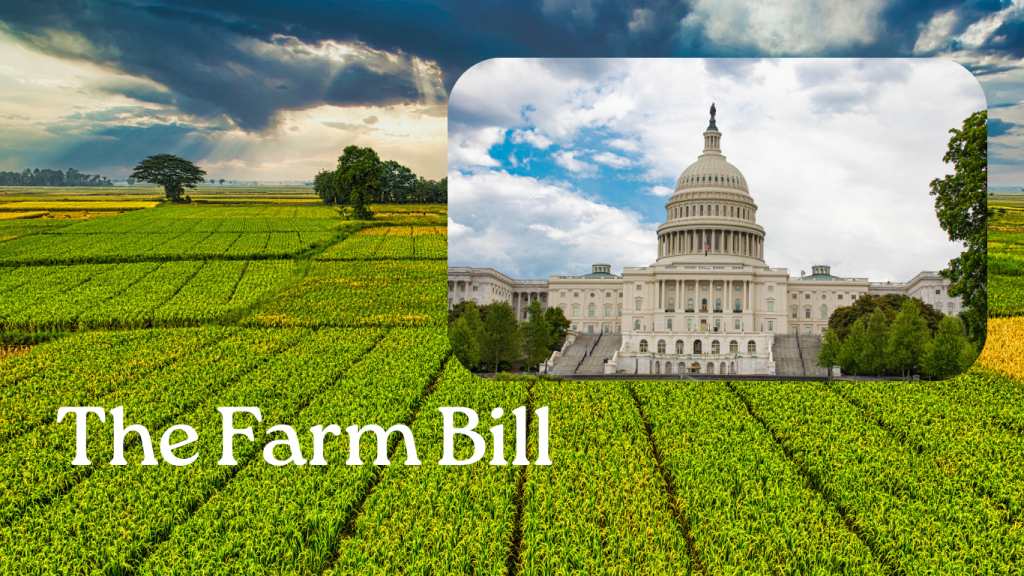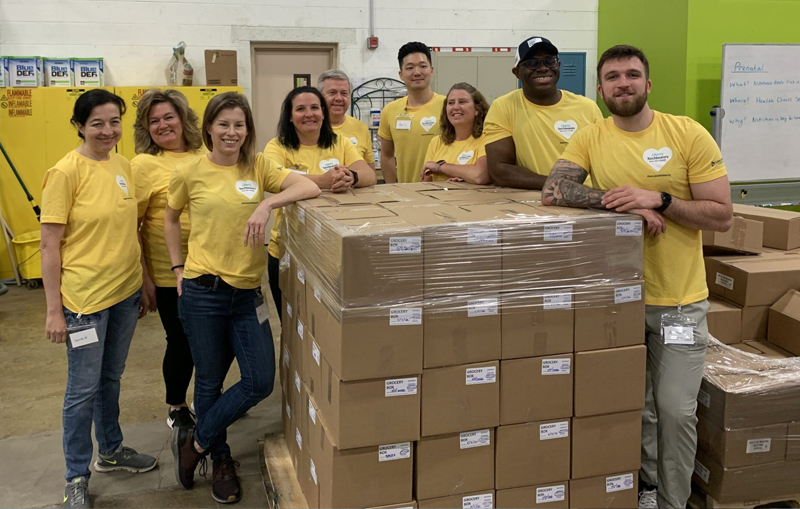The Farm Bill: How One Piece of Legislation Affects Food Security Programs for All of Us

At the Chester County Food Bank, we believe that access to nutritious food is a basic human right. We are committed to ending hunger and food insecurity in our community, and a pivotal resource is the Farm Bill. So what is the Farm Bill?
Often passed every five years, The Farm Bill is a comprehensive piece of legislation that addresses a wide range of food and farm related issues. Projected to cost $1.5 trillion over the next 10 years, 80% of the bill covers nutrition assistance programs like SNAP and TEFAP.
While it may not always grab the headlines, it plays a crucial role in shaping our nation’s food and farm system and will have a profound impact on our neighbors right here in Chester County.
Key Food Security Programs at Risk
- Supplemental Nutrition Assistance Program (SNAP): SNAP, formerly known as food stamps, is one of the most significant food assistance programs in the Farm Bill. It provides crucial support to low-income individuals and families, allowing them to purchase groceries and put food on their tables. In Chester County, many of our neighbors rely on SNAP to meet their nutritional needs.
- The Emergency Food Assistance Program (TEFAP): TEFAP provides essential support to food banks and other charitable organizations like CCFB. It helps us distribute food to those in need, ensuring that we can meet the growing demand for our services in times of crisis.
- Farmers’ Market Nutrition Program (FMNP): This program connects local farmers with low-income seniors and women with young children, providing them with fresh, locally grown produce. By supporting both farmers and vulnerable populations, FMNP contributes to the health and well-being of our community. Our Fresh2You Mobile Market accepts FMNP as payment and we offer a match incentive called Veggie Bucks that doubles the spent FMNP or SNAP dollars for the customer with Veggie Bucks to use on a future shopping visit.
- Commodity Supplemental Food Program (CSFP): CSFP helps provide nutritious food to low-income seniors, helping them maintain a balanced diet and improve their overall health.
How Stigma Impacts Program Participation
While these programs are crucial, one significant obstacle we face in addressing food insecurity is the stigma that prevents eligible people from accessing government assistance . Many individuals and families who struggle to put food on the table may hesitate to seek help fearing judgment or discrimination. We want to emphasize that food insecurity can happen to anyone. It doesn’t discriminate based on age, race, or socioeconomic status.
Here are some key aspects of this stigma:
- Perceived Failure: Many individuals who experience food insecurity view it as a personal failure. They may believe they should have been able to provide for themselves and their families independently. This perception can be isolating and lead to further emotional distress.
- Fear of Judgment: The fear of judgment from others is a significant barrier to seeking assistance. People may worry about what friends, family, or colleagues will think if they discover their struggles with food insecurity. This fear often keeps them silent about their needs.
- Mental Health Impact: The emotional toll of food insecurity is substantial. Anxiety, depression, and a sense of hopelessness are common among those who face it. The stigma only exacerbates these mental health challenges, as individuals may internalize the belief that they are somehow inadequate.
- Barriers to Children: Parents often go to great lengths to shield their children from the realities of food insecurity. While their intentions are understandable, this can inadvertently perpetuate the cycle of shame and secrecy.
It is crucial to emphasize that food insecurity can affect anyone, regardless of their background or circumstances. Life’s unexpected challenges, such as job loss, illness, or a family crisis, can lead to a temporary need for food assistance. We must create a community that supports one another without judgment or shame.

How You Can Help
- Spread Awareness: Talk openly about food insecurity to help break the stigma. The more we discuss this issue, the more we can reduce the shame associated with seeking assistance.
- Donate: Your support is crucial in our mission to ensure access to healthy food. Whether it’s a financial contribution or volunteering your time, every effort counts.
- Advocate: Stay informed about Farm Bill developments and advocate for policies that support food security programs by signing up for our Advocacy Alerts. Your voice can make a significant difference in shaping the future of these programs.
The Farm Bill and its food security programs are lifelines for many members of our community. We hope you’ll take action starting with Hunger Action Month and continue to make a lasting impact throughout the year.
Want to learn more? Sign up for our newsletter and stay connected. You can also donate food, funds and time to help us achieve our mission. Thanks to you, we’re growing a healthier community.
The Chester County Food Bank is the central hunger relief organization serving more than 160 food cupboards, meal sites, and social service organizations throughout Chester County. We mobilize our community to ensure access to real, healthy food.